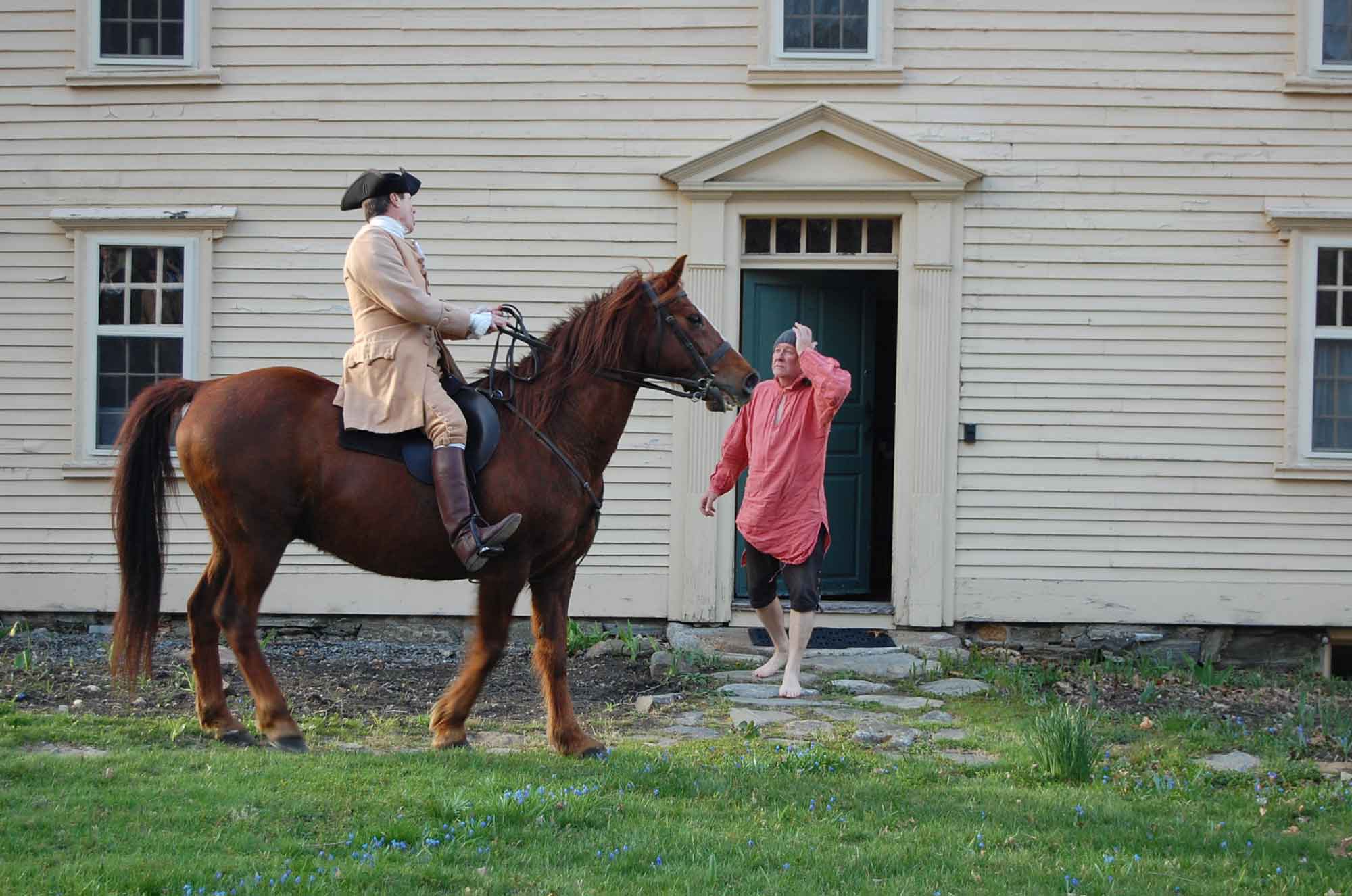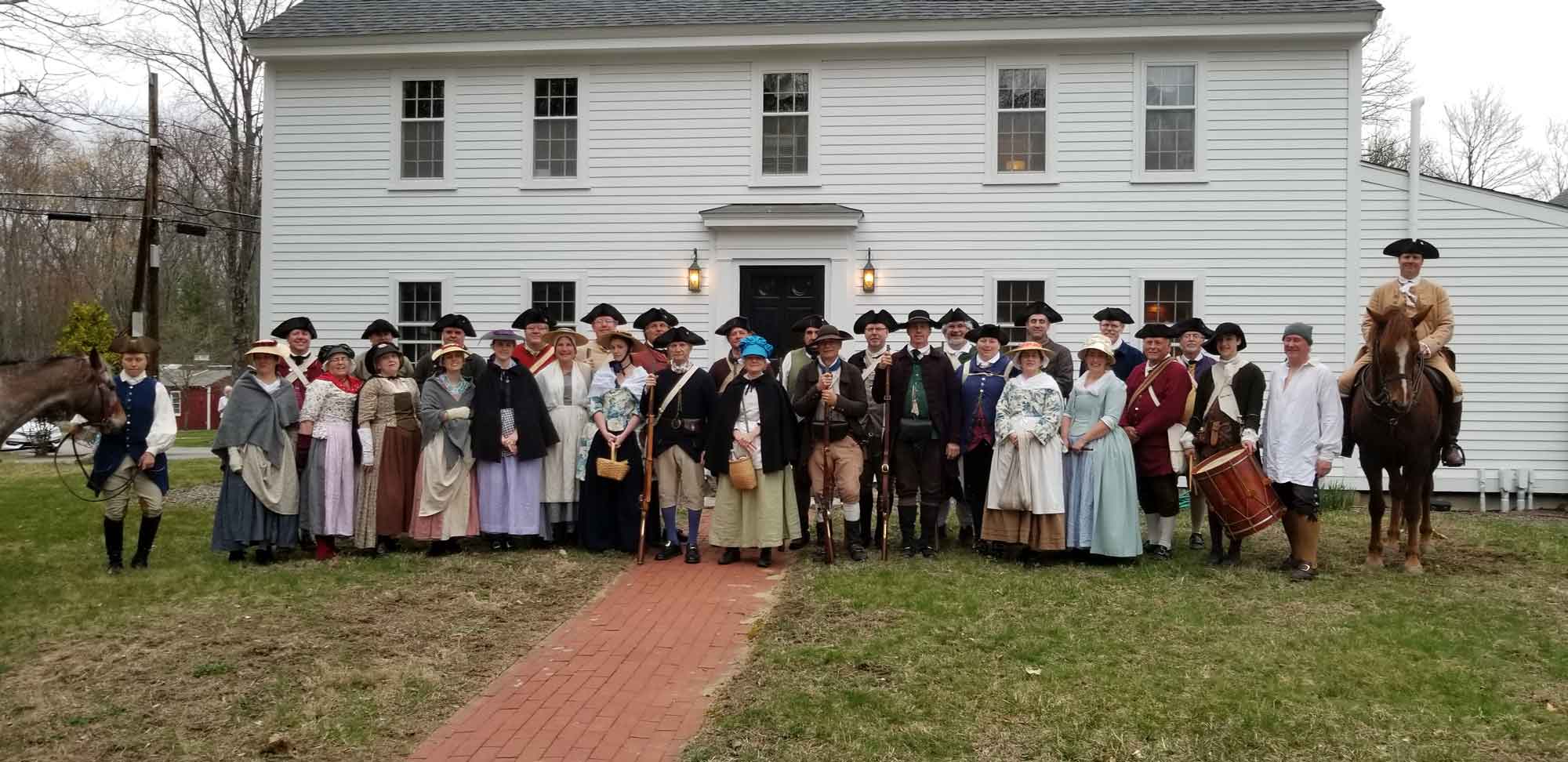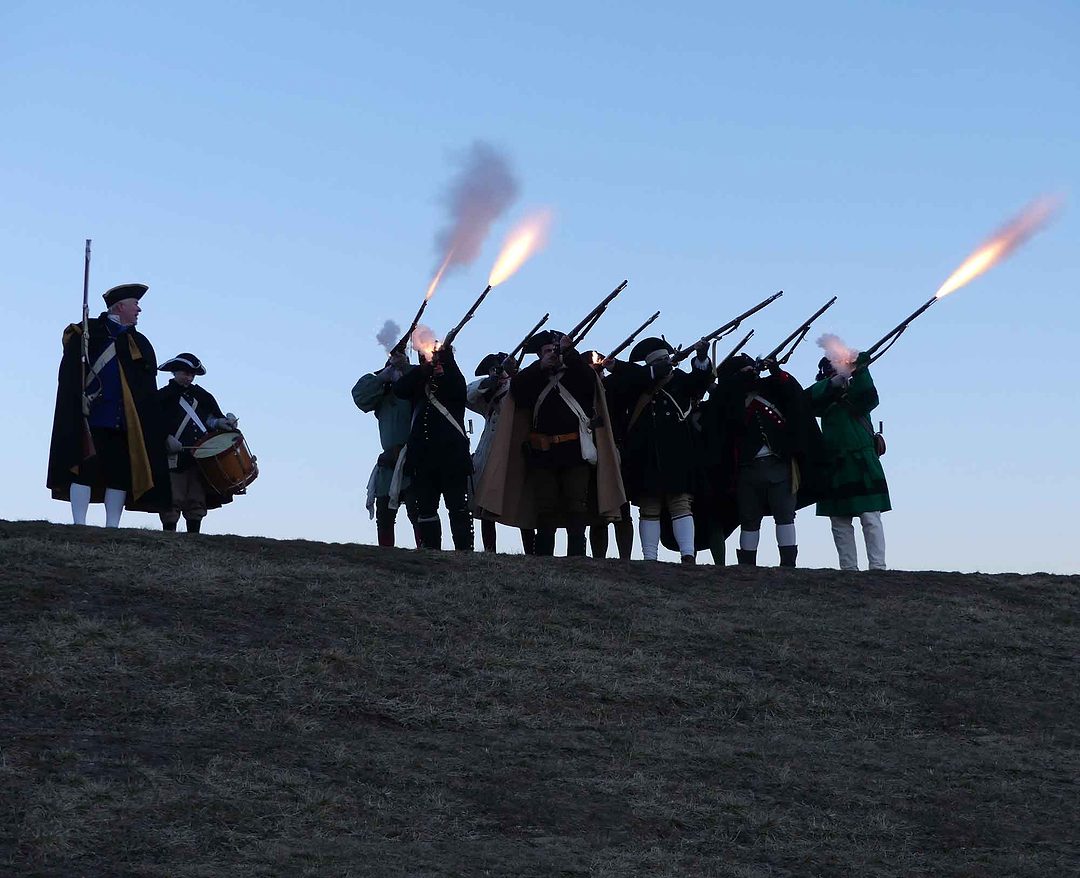 The Acton Minutemen were formed at the end of 1774 at a town meeting. Tensions with England had grown to a boil, and towns everywhere were responding by training their men to fight. The town of Acton, which had previously been part of Concord, chose their best men from their existing militia units to form the new Minute Company, and those men voted 30-year-old Isaac Davis as their Captain.
The Acton Minutemen were formed at the end of 1774 at a town meeting. Tensions with England had grown to a boil, and towns everywhere were responding by training their men to fight. The town of Acton, which had previously been part of Concord, chose their best men from their existing militia units to form the new Minute Company, and those men voted 30-year-old Isaac Davis as their Captain.
It was the law of the land that every man between the ages of 16 and 60 was required to serve in his town’s militia. They were not paid and met twice each year to conduct marching and musket drills. By contrast, Minute Companies were paid and met twice each week to drill and train and were arguably among the best trained soldiers in the area when hostilities broke out in April of 1775.
On the evening of April 18, 1775, about 800 British regulars (soldiers) set out from Boston on a march to Concord, a trek of about 16 miles. Their objective, by order of General Gage, was to find and destroy war materials they had learned were stockpiled there. Along the way, they hoped to also capture the leaders of the local uprising, John Hancock and Sam Adams, in Lexington. Their spies had told them that cannons, musket balls, barrels of flour, dried fish, canvas, and all manner of war supplies were being hidden all about Concord. Gage intended to stop any insurrection by the locals by confiscating their military goods before they had a chance to use them. But the local provincial towns and government had their own spies and got wind of the plan before the column even left Boston. Indeed, the word of their march was being spread through the countryside during the early hours of April 19 by the likes of Paul Revere, William Dawes, Samuel Prescott, and many other alarm riders prearranged to spread news of military movements by the British Army stationed in Boston. Throughout the night, cries of “the regulars are out of Boston and heading to Concord” could be heard in every town and village.

The alarm is delivered in Acton by David Loda to Colonel Francis Faulkner (played by Steve Crosby) during the 2022 Robbins’ Ride event
| Courtesy of the Acton Minutemen
In Acton, the alarm arrived at the home of East Militia Captain Joseph Robbins, and he had his 13-year-old-son saddle up his horse at about three a.m. and head off across town to wake up Captain Isaac Davis, as well as the officers of Acton’s West Militia Company, and rally them to march to Concord. They had rehearsed this event a month earlier with other local towns, marching to Concord and meeting on a hill overlooking the North Bridge, where they jointly conducted musket drills and planned a response should the British Army move on Concord. So, when Isaac Davis and the other Acton officers got the word, they were ready. Alarm shots rang out across Acton in the wee hours of the 19th, the signal for individual militia and minutemen to grab their gear and head off to the home of their unit’s captain and be ready to march.
At Isaac Davis’ home, Isaac’s wife Hannah made an early morning breakfast for the men and helped them powder their wigs. Men rolled cartridges and prepared themselves for whatever might come their way. These men were farmers, shopkeepers, tradesmen—common citizens. They were not professional soldiers, even though they were trained, and many had been in the French and Indian War years earlier. In fact, 22 of the 38 men of Isaac Davis’ unit were veterans of that war. They knew that if they were to meet the British regulars in Concord or elsewhere, they wanted to be ready. Hannah Davis would later say that Isaac was very serious that morning. He had his men and his family to think about. When the unit was all formed up and started off, he halted the column and went back to Hannah, saying only “Take good care of the children,” before turning and heading off to Concord.
When the Acton Minutemen arrived at the hill in Concord overlooking the North Bridge, a number of other town militia and minute companies were already there and a meeting of the officers was in progress, which Isaac joined. While they were talking, a column of smoke was seen rising from the town center of Concord (accidentally lit by the British soldiers). One man yelled “Will we let them burn the town down?” to which a cry of “No!” rang out. It was decided to move immediately on the bridge and the British soldiers guarding it. Isaac Davis and his Acton Minutemen were asked to lead the column, to which he stated, “I haven’t a man who is afraid to go.”

Mike Sutila, Bob Stiles and Mike Audette of the Acton Minute Men wait in the woods for the arrival of the British column at Battle Road 2023.
| Courtesy of the Acton Minutemen
With bayonets fixed, the column swung around and headed down the hill, marching straight at them, with Concord’s Major Buttrick, the overall commander on the field at the time, at Isaac’s side. Next to Davis on the other side was young Abner Hosmer, a private in the Acton Minutemen. As they advanced, they were pinned in by stone walls capped by wood rail fences on both sides of them. As they approached the bridge, the British were attempting to pull up boards, but abandoned that task and ran across to the other side, where their fellow soldiers fired a volley at the column. The first shot missed everyone, but a second volley burst forth from the regulars, hitting Isaac Davis squarely in the heart and killing him instantly. Major Buttrick yelled “Fire, fellow soldiers! For God’s sake, fire!” The return volley killed two British soldiers, and after another minute or two of additional volleys, the British broke ranks and ran. The action was over, and Acton took the brunt of it. Isaac Davis lay dead, and by his side, young Abner Hosmer lay dying with a head wound. Later in the day, another Acton man, James Hayward, would also be mortally wounded in Lexington. All three are now buried together under a large obelisk in Acton Center, never to be forgotten.

The men and women of the Acton Minutemen reenactor unit in 2019
| Courtesy of the Acton MinutemenActon’s deeds that day, along with those of men from Concord, Bedford, Lincoln, and many other towns in the area, were nothing short of heroic. It was the opening salvo of the American Revolution, which would rage on for six years, culminating in the formation of our great nation. Isaac Davis was the first commissioned officer to die for our country, and West Point cadets to this day learn his name.


